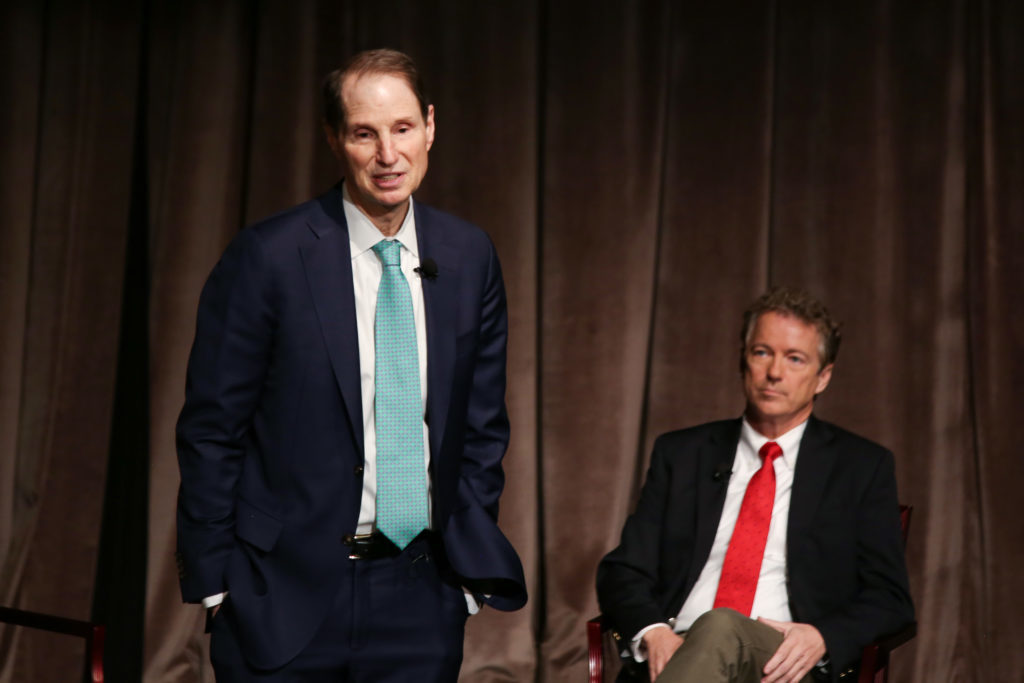A group of politically-minded student organizations hosted Sens. Rand Paul, R-Ky., and Ron Wyden, D-Ore., in the Betts Theatre Monday to discuss government surveillance and privacy rights.
The GW College Democrats, College Republicans and GW’s chapter of the Young America’s Foundation partnered to host the two senators, who have been among the most outspoken leaders in government against mass surveillance in the name of national security.
“We have always considered ourselves the bipartisan duo to keep hammering the message that we can’t give up liberty for security,” Paul said.
Both senators agreed that liberty and security are not mutually exclusive.
“Smart policies get you both liberty and security and not-so-smart policy gets you less of both. Don’t ever let a politician tell you you have to give up one or the other,” Wyden said.
The two said that as the digital age evolves, the government needs to act to protect privacy in different online venues including email and social media. Paul said privacy measures are drastically different on the internet because the Fourth Amendment, which prohibits unreasonable searches and seizures, does not apply to the digital world.
The senators discussed the downside of the third-party doctrine, the legal theory that people who voluntarily give information to third parties like banks and phone companies have no expectation of privacy.
“Anything we do on the internet, we absolutely expect anonymity,” Paul said. “We don’t expect that they are going to tell anyone about our purchases or what we read on the internet. But the government says you don’t have a privacy interest once you have a third party of information.”
Wyden said he “can’t figure out why privacy protections shouldn’t extend to the cloud.”
“Digital is different,” he said. “When somebody is arrested you can’t automatically whip through their phone because digital is something unique.”
The pair also spoke about a new bipartisan bill they proposed in October, which highlights the fact that government surveillance of a foreign target can give investigators access to American communications. Current regulations allow the FBI to conduct “backdoor” searches of those communications without a warrant.
“It is important to protect strong encryption and not allow the government to say there ought to be backdoors and require companies to build backdoors in their products,” Wyden said. “If there is any legislation to require companies to fill backdoors in their in products, because I think it’s wrong from a security standpoint, liberty standpoint and economic standpoint, I will filibuster that bill.”
The two also said the lack of transparency from the intelligence community is detrimental to individual liberty and only a select few people have oversight of massive intelligence agencies.
“It is so damaging to legislate in the dark,” Wyden said.
The two emphasized that government oversight is needed to protect citizens from invasion of privacy.
“We have made mistakes in our past, they do happen in times of war,” Paul said. “That’s why we need government oversight, to protect our rights and the minority in thought from unlawful surveillance.”





